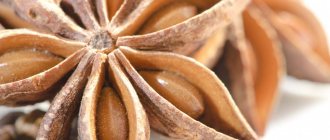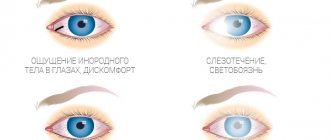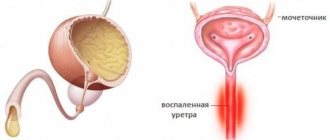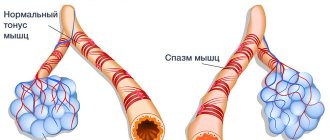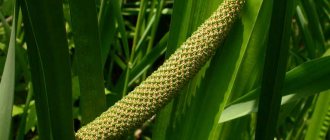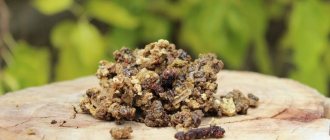Meniere's disease or syndrome is a disease characterized by damage to the structures of the inner ear, manifested by ringing in the ears, dizziness and transient hearing loss.
Studies have shown that this disease occurs in 1 person in 1000 (0.1%). This indicator approximately coincides with the incidence of multiple sclerosis.
Most of the patients are people over 40 years old. The incidence of development among men and women is the same. Meniere's disease (syndrome) affects approximately 0.2% of the entire world population. Most patients are elderly people over 50-60 years old. Women get sick 1.5 times more often than men.
The disease begins as a unilateral process, subsequently spreading to both ears. According to various studies, the disease becomes bilateral in 17-75% of cases within 5 to 30 years.
Every year, 46,000 new cases are diagnosed in the United States. Although no association with a specific gene has been identified, there is a familial predisposition to the development of the disease. In 55% of cases, Meniere's syndrome was diagnosed in relatives of patients, or the disease was present in their ancestors.
Classification of Meniere's disease
Based on the clinical symptoms observed at the onset of the disease, 3 forms of Meniere’s disease are distinguished:
- vestibular;
- cochlear;
- classical.
The cochlear form occurs in almost half of patients. At the initial stages of the disease, the patient experiences hearing loss, and subsequently other symptoms of Meniere's disease appear.
The vestibular appearance is characterized by vestibular disorders. Statistics show that this form occurs in 20% of patients.
The classic form of Meniere's disease will initially manifest as auditory and vestibular impairment. Occurs in 30% of all cases of the disease.
During the course of Meniere's disease, there is an exacerbation phase. During this period, attacks recur. There is also a phase of remission (absence of attacks).
Meniere's disease is classified according to severity depending on the time intervals of attacks and their duration. The mild degree is characterized by frequent short attacks. They can alternate with long breaks of several months or even years. The performance of patients during the interictal period is completely preserved. The average degree of Meniere's disease is manifested by frequent attacks lasting up to 5 hours. Patients then lose their ability to work for several days. The frequency of attacks in severe Meniere's disease ranges from 1 time per day to 1 time per week and lasts more than 5 hours. In such cases, the patient loses his ability to work forever.
Many modern doctors classify Meniere's disease according to I.B. Soldatov, who identified his stages of the syndrome. This theory distinguishes between an irreversible and a reversible stage during the disease. Meniere's disease in the reversible stage is characterized by the transitional nature of vestibular disorders and light intervals between attacks. Hearing decreases due to disruption of the sound-conducting mechanism; in general, hearing potential is not lost.
For Meniere's disease, the irreversible stage is expressed by an increase in the duration and frequency of attacks, a decrease and complete disappearance of light spaces, significant and permanent hearing loss, and persistent vestibular disorders. Hearing deteriorates due to damage to the sound-receiving and sound-conducting apparatus of the ear.
How to treat and cure Meniere's disease with folk remedies
Traditional medicine at home recommends treating Meniere's disease with the following folk remedies.
Take 100 g of seaweed powder. Every day before lunch, swallow 1 teaspoon once a day.
If you are constantly dizzy, pay attention to your food and eat heavily those foods that contain a lot of phosphorus. You need to eat more eggs, fish, cheese, cucumbers, radishes, peas and walnuts.
Red clover. Pour 1 teaspoon of inflorescences with a glass of water, boil for 5 minutes over low heat, strain. Drink 1 tablespoon 4-5 times a day.
Prince of Siberia. Pour 5–6 g of dry leaves and stems with a glass of boiling water. Let it brew for 1 hour, strain. Take half a glass 2-3 times a day hot.
After lunch and dinner, drink 200 ml of linden blossom or peppermint infusion.
If you inhale camphor for 3-5 minutes, the dizziness becomes less and often stops completely.
If you experience frequent dizziness, it is necessary to engage in physical exercises that strengthen the vestibular apparatus.
Massage an acupressure point widely used in the fight against dizziness. The point is located two-thirds of the distance from the upper lip to the nose. This strengthens your sense of balance and energy. Pressure is applied slightly upward with the tip of the thumb. Exercise helps with all types of dizziness.
It is useful to inhale vapors of essential oils that restore the normal functioning of the blood vessels of the brain and heart. You can mix camphor and rosemary oils - this is a strong and well-sedative, peppermint oil, as well as various smelling salts.
Causes of Meniere's disease
More than 150 years have passed since the mechanism of Meniere's disease was first described, but the question of the reasons for its development remains relevant today. Currently, there are several approaches to explaining the factors that lead to the onset of the disease.
The viral theory emphasizes the provoking effect of a viral infection, which can trigger the mechanism of Meniere's disease. For example, this is the herpes simplex virus or cytomegalovirus.
There is also a hereditary theory, which has been confirmed by numerous familial cases of Meniere's disease. Special tests showed autosono-dominant inheritance of the disease.
Some researchers focus on the connection between Meniere's disease and allergies. In addition, other causes include ear injuries, water-salt metabolism disorders, vascular disorders, and lack of estrogens.
Recently, the theory of the occurrence of Meniere's disease as a result of a violation of the autonomic innervation of the vessels of the inner ear has become widespread. It is also possible that the labyrinth, or more precisely, a change in the secretory activity of its cells, has a decisive influence on the development of the disease. It is worth noting that they are responsible for the production of adrenaline, serotonin and norepinephrine.
Many researchers who have devoted themselves to the study of Meniere's disease note that increased intralabyrinthine pressure occurs as a result of the accumulation of excess endolymph in the labyrinth. It has been proven that excess endolymph may be due to a violation of its absorption and circulation or its increased production. With increased endolymph pressure, there will be a deterioration in trophic processes in the sensory cells of the labyrinth, and difficulty in conducting sound vibrations. An attack of Meniere's disease can provoke a sharp increase in intralabyrinthine pressure.
Causes
The reasons are still not fully understood. The pathological mechanisms that predispose to the disease have been studied to a greater extent. This can be one of 2 options:
- Increased formation of endolymph, a fluid that fills the space of the inner ear;
- Reduced absorption of endolymph.
But why does this happen? Scientists cannot accurately answer this question. There are only assumptions in the form of theories. There are 6 popular hypotheses:
- Anatomical. The development of the disease is associated with low airiness of the mastoid process, which normally equalizes endolymphatic pressure, and underdevelopment of the vestibular aqueduct (it houses the endolymphatic duct).
- Genetic. Certain genes have been identified that are associated with the disease.
- Immune. Confirms the presence of immune complexes that are found in the endolymph.
- Vascular. An imbalance of vascular tone is observed in both Meniere's disease and migraine. These diseases are often combined with each other, creating the prerequisites for the theory.
- Allergic. People suffering from such a hearing disorder are more likely than others to suffer from allergies.
Metabolic, associated with excessive accumulation of potassium ions in the endolymph. This negatively affects the condition of the nerve cells located in the inner ear, which leads to dizziness and hearing loss.
Symptoms of Meniere's disease
The main symptoms of Meniere's disease are dizziness, which is accompanied by repeated vomiting and nausea. At such moments, the patient experiences a sensation of rotation or displacement of surrounding objects. They also develop a feeling of their own body spinning or sinking.
During an attack of Meniere's disease, the dizziness is very severe, the patient cannot stand or even sit. At such moments, they most often lie down or close their eyes. The condition immediately worsens when trying to change the position of the body, nausea and vomiting intensify.
Meniere's disease causes severe tinnitus, hearing loss, impaired coordination and balance, increased sweating, pale face, tachycardia, and shortness of breath. During an attack, rotatory nystagmus is objectively observed. If a patient with Meniere's disease lies on the affected ear, it will only get worse.
An attack can last from 2-3 minutes to several days, but, as a rule, it passes from 2 to 8 hours. The occurrence of another attack can be triggered by a stressful situation, overwork, overeating, drinking alcohol, tobacco smoke, rising body temperature, medical procedures to improve the condition of the ear, noise. Patients diagnosed with Meniere's disease, in some cases, feel the approach of an attack by the aura that precedes it. This condition manifests itself as increased noise in the ear or the appearance of a slight imbalance. Sometimes patients experience improved hearing before an attack.
In patients after an attack of Meniere's disease, noise in the ear, hearing loss, heaviness in the head, a feeling of instability, a slight lack of coordination, general weakness, and changes in gait persist for some time. As a result of the progression of Meniere's disease, these phenomena become longer lasting and more pronounced over time. Under the influence of the disease, they are protected even after the attacks have ended.
Meniere's disease inevitably leads to hearing impairment, which will only progress over time. From the very beginning, there is a deterioration in the perception of low-frequency sounds. After a while, this affects the entire audio range. With each new attack of Meniere's disease, hearing loss will increase, which will subsequently turn into complete deafness. As a rule, with the onset of deafness, the patient ceases to be bothered by dizziness.
In mild and moderate Meniere's disease, the initial stages of the disease are characterized by a phasic process: periods of remission alternate with exacerbations. During remission, the condition returns to normal and performance returns.
In the future, the clinical picture may intensify, and Meniere's disease begins to progress. Even during periods of recession, heaviness in the head, general weakness, decreased performance, and vestibular disorders persist. If the first symptoms of Meniere's disease appear, treatment should be started as quickly as possible.
Symptoms
The general symptoms of an attack of Meniere's disease do not reflect the entire picture of the disease, since they vary in time from the onset of the disease, during its onset, between and after the onset of attacks, as well as during the later stage of Meniere's disease and gradually progress.
Meniere's disease can begin with temporary hearing loss and progress to attacks of dizziness.
Attacks of the disease are often preceded by an "aura" or specific set of warning symptoms, listed below.
Paying attention to these warning signs may allow the patient to assume a safer and more comfortable position before the onset of an attack.
Aura symptoms include:
- balance problems, dizziness;
- headache, increased pressure in the ear;
- hearing loss or increasing ringing in the ears;
- high sensitivity to sounds;
- vague feeling of anxiety.
Symptoms of attacks in the early stages of the disease include:
- spontaneous, severe dizziness;
- temporary hearing loss;
- Ear congestion (congestion) and/or tinnitus.
Healthy ear and Meniere's disease
In addition to the symptoms above, additional signs may include:
- shiver;
- anxiety, fear;
- diarrhea nausea, vomiting;
- blurry vision or eye twitching;
- cold sweat, palpitations or rapid pulse of the patient.
After the attack ends, during periods of severe fatigue or exhaustion, which happens quite often, there is a need for additional hours of sleep.
In the periods between attacks, a set of different symptoms may appear, varying in different patients:
- anger, anxiety, fear, worry;
- change in appetite;
- clumsiness;
- diarrhea, vomiting;
- difficulty concentrating;
- distractibility, tendency to choose words;
- fatigue, malaise, drowsiness;
- headache, feeling of heaviness in the head;
- dizziness, weakness;
- loss of self-confidence and independence;
- nausea, motion sickness (sea sickness);
- neck pain or stiff neck;
- palpitations or rapid pulse, cold sweat;
- distortion of sound perception and sensitivity;
- unsteadiness (sudden falls, stumbling, difficulty turning or walking in poorly lit areas, tendency to look down or feel for support);
- Difficulties with vision (blurring of objects, jumping images, problems with depth perception, glare, focusing, observing movement).
The later stages of Meniere's disease refer to a set of symptoms rather than a single point in time.
Hearing loss becomes more significant during this period. Tinnitus and/or ear congestion may become worse and last longer.
Episodes of dizziness may become more frequent, as may difficulties with vision and balance. These include difficulty walking in the dark with sometimes sudden loss of balance.
Sometimes attacks of vestibular origin occurring at this stage of the disease are characterized by a sudden short-term loss of body position, but without loss of consciousness.
Some of the symptoms of later stages of the disease may cause problems when you are tired, in the dark, or in visually stimulating situations.
Attacks can last from 20 minutes to 24 hours. Attacks may occur with multiple attacks each week; or separated by weeks, months or even years.
The unpredictable nature of the disease complicates its treatment. There are currently no effective treatments for Meniere's disease, however, there are treatments that can help manage its symptoms.
Diagnosis of Meniere's disease
An otolaryngologist diagnoses Meniere's disease due to the characteristic pattern of attacks of systemic vertigo in combination with hearing loss and tinnitus. Often this may not be enough to make an accurate diagnosis and determine the degree of complexity of the disease.
So, in order to determine the degree of hearing impairment, it is necessary to conduct functional studies of the hearing analyzer:
- audiometry;
- acoustic impedance measurement;
- tuning fork examination;
- electrocochleography;
- promontorial test;
- otoacoustic emissions, etc.
Using audiometry, patients with Meniere's disease are diagnosed with a mixed nature of hearing loss. In the early stages of Meniere's disease, pure tone threshold audiometry diagnoses hearing loss in the low frequency range. The air-bone interval is detected at frequencies of 125-1000 Hz. The sensory type of increase in tonal hearing thresholds is observed with the progression of the disease, and at all frequencies studied.
The functional state of the intraauricular muscles and the mobility of the auditory ossicles can be assessed by acoustic impedance measurement. The promontorial test helps to identify pathologies of the auditory nerve. All patients with Meniere's disease require an MRI of the brain to rule out acoustic neuroma.
When performing microotoscopy and otoscopy, patients are noted to have no changes in the eardrum and external auditory canal. Thanks to this, it is possible to eliminate inflammatory ear diseases.
Diagnosis of Meniere's disease requires the study of vestibular abnormalities, carried out using indirect otolitometry, stabilography and vestibulometry. A study of the vestibular analyzer reveals hyporeflexia during attacks, and hyperreflexia during periods of remission. Studies of spontaneous nystagmus (electronystagmography, videooculography) diagnose its horizontal-rotatory type. During an attack, the fast component of nystagmus is noted in the affected direction, and during remission in the healthy direction.
Meniere's syndrome includes cases of systemic vertigo that are not accompanied by hearing loss. To diagnose the underlying disease that caused the attacks, it is necessary to consult a neurologist, conduct electroencephalography, neurological examination, study of cerebral vessels (extracranial and transcranial ultrasound, duplex scanning REG), measurement of intracranial pressure using ECHO-EG. A study of auditory potentials is carried out if central hearing loss is suspected.
Diagnosis of increased endolymphatic pressure, which manifests itself in Meniere's disease, is carried out using the glycerol test. To do this, the patient takes orally a mixture of water, glycerol and fruit juice, calculating 1.5 g of glycerol per 1 kg of weight. The test result is positive if, when performing threshold audiometry after 2-3 hours, a decrease in hearing thresholds by 10 dB (at 3 frequencies) or by 5 dB is detected at all frequencies. The test result is considered negative if there is an increase in hearing thresholds. All this indicates the irreversibility of the ongoing pathological process in the labyrinth.
Differential diagnosis of Meniere's disease is carried out with eustachitis, acute labyrinthitis, otosclerosis, tumors of the auditory nerve, otitis media, labyrinthine fistula, psychogenic disorders, vestibular neuronitis.
Dried apricots for Meniere's diseaseIn the treatment of Meniere's disease, good results are achieved by using diaphoretics and diuretics, and prescribing an anhydrous and salt-free diet.
Cleansing the body is of particular and very important importance in the treatment of Meniere's disease and labyrinthitis. It is advisable to cleanse the body of salts for many diseases (atherosclerosis, hypertension, metabolic diseases, etc.), but for diseases of the inner ear this cleansing is necessary. There are many ways to remove salts from the body. Cleansing methods
Tibetan way
In his book “Secrets of Tibetan Medicine,” V. Vostokov offers a recipe for a Tibetan cleansing mixture. This cleansing collection includes more than 30 herbs, most of which do not grow in our country. Therefore, here is a slightly different composition of the collection, which is in no way inferior to the original in terms of healing properties.
PREPARE THE COLLECTION:
* Chamomile - 100 g * St. John's wort - 100 g * Immortelle - 100 g * Birch buds - 100 g * Strawberry leaf - 100 g
2 tbsp. l. pour 2 cups of boiling water over the collection and leave in a thermos overnight. Strain. Take 200 ml after breakfast.
The composition has a good effect on atherosclerosis, obesity, poor memory, hypertension, chronic nephritis, cholecystitis, cardiovascular diseases, joint diseases (osteochondrosis), removes salts from the body, which is very important in the treatment of diseases such as labyrinthitis, prostate adenoma and a lot others.
According to Dr. Newman
In the morning, dilute 1 tbsp. l. Epsom salts in 100 ml of water, add the juice of two medium-sized lemons, fill the glass to the top with boiled water and drink. After half an hour, pour 1/2 cup of carrot and celery juice or the same amount of citrus juice, add 1/2 cup of distilled water and drink. During the day, drink juice with distilled water every half hour. You should not take food, if hunger overcomes you - eat one orange.
Sometimes, when cleansing from salts, headaches, nausea, and weakness may occur. To avoid this, before starting to cleanse the body, you must do a cleansing enema, and during the treatment period, take a shower or bath several times a day. After one day of cleansing, you can switch to complete fasting or a kind of fast for 3 days. Give a cleansing enema every evening to rid the body of intestinal intoxication products.
According to Dr. Walker
Before starting the fast, take a laxative in the evening (preferably a solution of Epsom or Glauber's salts). After taking a laxative, drink 1/2 glass of orange juice with a small dash of lemon every half hour and do not eat anything for 24 hours. Before taking a laxative, do an enema of 2 liters of warm water (you can add chamomile juice). This is followed by a 3-5 day fast and a vegetarian diet for at least 2 weeks.
Russian method (according to Dr. Uzhegov)
In the evening, do an enema of 2 liters of warm boiled water. The next day - complete fasting, drink only distilled or melt water. In the evening, put a medium-sized cone (spruce, pine, cedar, fir) into a glass of warm boiled water. In the morning, boil the cone in the same water for 5 minutes. Throw away the cone after boiling, fill the glass to 200 ml with boiled water and drink half. Leave the other half for the evening.
Take a portion of rice (70-100 g), rinse well, add 500 ml of water and put on fire. Bring to a boil and remove from heat. Replace the water, rinse the rice well again and put it on the fire again, let the water boil, boil for a minute, set aside. Change the water again, rinse the rice, add 500 ml of water and put on fire. Do TSLK 4 times. For the 4th time, cook the rice, drain the water, add butter or honey to taste. Don't add salt! This is breakfast. After it, do not eat anything until lunch and it is advisable not to drink (if you are very thirsty - distilled or melt water). For lunch and dinner - normal food, but with a sharp restriction of salt. Everything should be unsalted. In nutrition, it is advisable to place the main emphasis on vegetarian dishes.
The course of treatment is a month (in the morning and evening, 100 ml of pine cone decoction, for breakfast, boiled rice four times). Typically, up to 3 kg of salts leave the body in a month. The most active release of salts begins on the 15-18th day of treatment and will continue for 3-4 months. A very large amount of salts are removed from the body, salts leave the spine (osteochondrosis), joints (polyarthritis), and blood vessels (atherosclerosis). Since potassium salts, which are very necessary for the functioning of the heart, are lost along with other salts, pain in the heart area may begin on the 16th-18th day. To avoid this, from the 15th day of treatment you should start drinking 1 tsp of honey. 3-4 times a day, and also introduce fried millet, dried apricots, fried potatoes, apples, lemons (foods containing large quantities of potassium) into the diet.
The essence of this technique is that the body, not receiving enough salts from the outside, begins to use salts deposited in the vessels, joints, and all organs of the body. The body gets rid of salt and lime deposits. Vessels, joints, cartilage tissue, and spine are cleansed. The body rejuvenates.
The technique is indispensable for elderly and senile people.
You can cleanse the body of excess salts with the help of medicinal plants:
SUNFLOWER ROOTS TEA
dissolves many salts. In the fall, thick parts of the roots are collected, the hairy roots are cut off, washed and dried in the usual way. Before use, the root is crushed into small bean-sized pieces and boiled in an enamel kettle: about 1 cup of roots per 3 liters of water. Boil for 2 minutes. Drink tea 2 days in advance.
Sunflower root tea is drunk in large doses for a month or more. In this case, salts begin to come out only after 2 weeks of treatment and continue until the urine becomes clear, like water, and there is no sediment in it. If you collect all the salts by settling, then an adult can get up to 2 kg.
SALT DISSOLVES GOOD
tea made from knotweed, horsetail, watermelon rinds, pumpkin tails, bearberry, marsh cinquefoil.
BLACK RADISH JUICE
dissolves mineral salts well in the bile ducts and gall bladder. There is such a recipe: 10 kg of black radish tubers are peeled and the juice is prepared. It turns out to be about 3 liters. The rest is cake. The juice is stored in the refrigerator, and the cake is mixed with honey or sugar (300 g of honey per 1 kg of cake).
Start drinking juice 1 tsp. after meal. If pain in the liver is not felt, then the dose can be increased to 0.5 cups per dose. Cake is eaten 1-3 tbsp. l. 2-3 times a day.
Bile of poultry: chicken, goose, turkey also dissolves bile salts and body salts. So that it can be taken, a capsule-ball is made from bread crumb, in which a few drops of bile are wrapped. Swallow 2-5 of these balls 2 times a day. Do this 30-40 minutes after eating. A course of treatment requires 5-10 gall bladders taken from chickens. Bile is stored in a special plastic container in the refrigerator. Remember that the maximum dose of bile should not exceed 30 drops per day.
To remove excess fluid from the body (which is very important for labyrinthitis), the following herbal remedies are used:
JUNIPER FRUITS
, licorice root, steelberry root, lovage root (equal amounts of all). 1 tbsp. l. leave the crushed mixture in 1 glass of cold water for 6 hours, then boil for 15 minutes. Strain. Drink 1/4 cup 4 times a day.
NETTLE LEAF, St. John's wort, bearberry leaf, plantain leaf, rose hips
(everyone equally). 1 tbsp. l. add 600 ml of water to the crushed mixture and boil for 5 minutes. Leave for 1 hour, strain. Drink a day in 3-4 doses.
PREPARE THE COLLECTION:
* Cornflower flowers - 30 g * Bearberry leaf - 40 g * Licorice root - 30 g
1 tbsp. l. Brew the mixture with a glass of boiling water, leave for 15 minutes, strain. Take 1 tbsp. l. 3-4 times a day.
PREPARE THE COLLECTION:
* Birch leaf - 30 g * Horsetail grass - 30 g
1 tbsp. l. pour 1 cup of boiling water over the mixture, boil for 3-5 minutes, leave for 1 hour, strain. Drink 1/4 cup 4 times a day.
OATH STRAW DECOFFER
, collected from the beginning of earing and before the grain begins to ripen, in the amount of 40 g per 1 liter of water, drink 1/2 cup 3-4 times a day.
Wheatgrass ROOT
1 tbsp. l. boil in 1/3 liter of water for 3 minutes and drink 2 tbsp. l. 3-4 times a day.
BLACK RADISH JUICE with HONEY
start drinking 1/2 glass per day and gradually increase the dose to 2 glasses per day.
NETTLE ROOT
2 tsp. Infuse in 1 glass of boiling water for 1 hour and drink half a glass 3-4 times a day.
Drink 2 tbsp in the morning. l. ONION JUICE
. To do this, take 2 medium onions in the evening, cut them into thin slices, sprinkle with sugar, and in the morning, after squeezing the juice, drink.
Burn the stems from ordinary Russian BEANS
on an iron sheet. Collect the ash, grind into powder and store in a glass jar with a ground stopper. Directions: mix 1 tbsp. l. vodka with 1/2 tsp. ash and take 3 times a day.
Infusion of water from AGAVE LEAF and WORMWORM
in the same proportion. 1 tsp. mixture for 1 cup boiling water. Drink 1/2 glass 2 times a day.
PARSLEY
(root, fruit, herb) - used not only in plant mixtures, but also separately.
1 tsp. seeds or 1 tbsp. l. The whole plant is simmered for 10 hours in 300 ml of water and drunk 1 tbsp. l. 4 times a day.
Pass the parsley root and greens through a meat grinder to obtain 1 cup of mass, add 0.5 liters of boiling water and wrap for 6-8 hours. Then filter, squeeze, add the juice of 1 lemon and drink everything in 3 doses per day. You need to drink 2 days in a row. Repeat the procedure after 3 days.
PUMPKIN
(porridge and juice from it) - for edema and diseases of the heart, kidneys and bladder.
AS A DIRECTOR
take infusions of thyme, burdock, and knotweed.
ELDERBORN ROOT 150 g chopped, pour 300 ml of vodka. Leave in a warm place for 10 days, strain, take the first 3 days, 10 drops 3 times a day before meals, 3 days, 15 drops and 3 days, 20 drops 3 times a day. Drink until the end of the medicine.
Wash and chop 800 g of PARSLEY and place in a saucepan. Pour fresh milk and place in a not too hot oven. Allow the milk to evaporate until 1/2 of the original amount remains in the pan. Strain and give to the patient 1-2 tbsp. l. decoction every hour. The medicine must be taken on one day. This is a strong diuretic. It helps even when other diuretics are powerless.
For nausea and vomiting, which are common symptoms of labyrinthitis, take the following herbal remedies.
GINGER.
Stimulates appetite, relieves nausea and is used as an antiemetic. The technique is taken from folk medicine of Ancient Greece.
1 tsp. Boil the powdered rhizome in 2 cups of water for 5 minutes. Drink 200 ml as tea 3 times a day.
Alcohol tincture of ginger rhizomes (1 tbsp crushed rhizomes per 300 ml of vodka. Leave for 10 days, strain) add 2-3 drops to a glass of warm boiled water. Drink 3-4 times a day.
For nausea and mild vomiting, give the patient RYE COFFEE or infusion of CHAMOMILE FLOWERS.
Tea with the addition of MELISSA and 1-2 tbsp. l. lemon or orange juice has a good effect on nausea and vomiting.
ARONIC SPOTTED.
Bring 5 g per 1 glass of water to a boil, cool. Take 10 drops 3 times a day before meals.
PREPARE THE COLLECTION:
* Wormwood - 8 parts * Yarrow - 2 parts * St. John's wort - 2 parts
Grind the mixture. 1 tbsp. l. pour 1 cup of boiling water over the mixture, leave in a sealed container in a boiling water bath for 15 minutes, cool at room temperature, strain, take 1/4 cup 3-4 times a day before meals.
fragrant spikelet.
An infusion of the herb is useful for nausea, as well as for women in the first half of pregnancy with toxicosis. 1 tbsp. l. dry crushed herb, pour 1 cup of boiling water, leave in a tightly sealed container for 1 hour, strain. Take 1/3 cup 3 times a day.
Remember, traditional medicine cannot completely replace the methods of classical medicine!
Be healthy!
Treatment of Meniere's disease
For Meniere's disease, drug therapy has 2 directions: relief of an attack and long-term treatment. Complex treatment of Meniere's disease includes medications designed to reduce capillary permeability and microcirculation of the structures of the inner ear, atropine preparations, venotonics, neuroprotectors, and diuretics. Betahistine, which has a histamine-like effect, has proven itself well in the treatment of Meniere's disease.
To relieve an attack, a combination of the following drugs is used: vasodilators (no-spa, nikoshpan), atropine and scopolamine drugs (Belloid, Bellaspon), diuretics, antihistamines (pipolfen, diphenhydramine, suprastin), antipsychotics (triftazine, aminazine). Treatment for an attack of Meniere's disease usually does not require hospitalization of the patient and can be carried out on an outpatient basis. However, with repeated vomiting, intravenous or intramuscular administration of drugs is necessary.
Treatment of Meniere's disease should be carried out against the background of the correct regimen, psychological support of the patient and adequate nutrition. For Meniere's disease, it is recommended to regularly perform exercises to train the vestibular system and coordination. Physical activity does not need to be limited between attacks.
In most cases, with the help of drug treatment, it is possible to reduce noise in the ear, reduce the time and frequency of attacks, reduce their severity and stop the development of hearing loss.
Surgical treatment of Meniere's disease is prescribed when there is no effect of drug therapy. In case of Meniere's disease, surgical interventions are divided into destructive, drainage and operations on the autonomic nervous system.
Drainage interventions consist of decompression operations aimed at increasing the outflow of endolymph from the cavity of the inner ear. Among them, the most common are: perforation of the base of the stapes, drainage of the labyrinth through the middle ear, drainage of the endolymphatic sac, fenestration of the semicircular canal.
Destructive operations include removal of the labyrinth, intracranial transection of the vestibular branch of the VIII nerve, destruction of the labyrinth and laser destruction of its cells with ultrasound.
Surgeries on the autonomic nervous system include resection or intersection of the chorda tympani, cervical sympathectomy.
Meniere's disease is treated using effective alternative techniques. In particular, we can distinguish chemical ablation, the essence of which is the introduction of alcohol, streptomycin or gentamicin into the labyrinth. If bilateral hearing loss is diagnosed, patients are recommended to undergo hearing replacement. The course of treatment is quite long, may consist of several stages and change during therapy.
Treatment
Is there a cure?
Currently, Meniere's disease remains an incurable disease, but symptomatic therapy has been successfully used to control symptoms and stop further progression. Some new treatment principles come very close to providing complete cure (eg, low-dose gentamicin).
The frequency and intensity of attacks can be significantly reduced using simple methods, even without the use of drugs. Patients are advised to follow a diet and a healthy lifestyle. It is necessary to give up alcohol, smoking, drinking coffee and other products that can worsen the symptoms of the disease.
To control the manifestations of the disease in patients diagnosed with Meniere's syndrome, treatment involves the use of anti-nausea drugs, including antihistamines (meclozine, trimethobenzamide) and other groups (betahistine, diazepam)
Particular attention is paid to betahistine, since it is the only drug that has a vasodilator effect on the vessels of the inner ear
Preparations for long-term use
Diuretics can be used to reduce the amount of fluid retained. A common combination is triamterene and hydrochlorothiazide (Diazide). Taking diuretics reduces the amount of fluid in the body and normalizes pressure in the cavity of the inner ear.
Taking diuretics also promotes the excretion of large amounts of minerals (in particular potassium), so it is necessary to adjust the diet so that the potassium in it exceeds the minimum required daily dosage (add bananas, oranges, spinach, sweet potatoes).
Surgery
If symptoms continue to increase during treatment, more radical surgical treatment is used. Unfortunately, surgery does not provide a 100% guarantee of hearing preservation.
Organ-preserving operations are used to normalize the functioning of the vestibular apparatus without removing any anatomical structures. Typically, such operations are accompanied by the introduction of hormonal drugs (dexamethasone, etc.) into the middle ear.
To temporarily improve the patient's condition, surgical decompression of the endolymphatic sac is used. Most patients who undergo this operation note a decrease in the frequency and severity of dizziness without deterioration or loss of hearing. However, this method does not provide long-term improvement or complete cessation of attacks.
Injections of drugs into the middle ear
A number of innovative methods have been developed to combat dizziness and other symptoms. Meniere's syndrome is treated by injecting various medications into the middle ear. Subsequently, they penetrate into the cavity of the inner ear and have an effect similar to surgery.
- Gentamicin (an antibiotic with an ototoxic effect) reduces the ability to coordinate movements of structures on the affected side. As a result, the vestibular function is taken over by the healthy ear. The drug is administered under local anesthesia. After treatment, the frequency and severity of attacks decreases significantly, although there is a high probability of hearing loss;
- Hormonal medications (dexamethasone, prednisolone) also help control the symptoms of the disease. The advantages of using steroids include a low incidence of hearing loss. The downside is that it is less effective compared to gentamicin.
Physiotherapy
For vestibular rehabilitation, methods are used to improve gaze fixation, reduce dizziness and improve coordination through special exercises and a specific lifestyle.
This complex of treatment techniques is called “vestibular rehabilitation”. With its help, a stable reduction in the severity of symptoms of the disease and an improvement in the quality of life of patients is ensured.
Treatment of Meniere's syndrome
This disease is treated by a neurologist. Since Meniere's disease is often caused by autonomic disorders, treatment includes the use of antipsychotics. This group of drugs suppresses the activity of the parasympathetic system, and also relieves nausea and vomiting that torment the patient.
If the cause of excess endolymph is a violation of cerebral circulation in the vertebrobasilar system, then the vasodilator Betaserc is used.
Stugeron, Nitsergolin, Cavinton dilate blood vessels, normalizing the nutrition of the vestibular apparatus.
Diuretics are used to remove excess fluid in the semicircular canals and cochlea in Meniere's syndrome. Furosemide, Veroshpiron, Indapamide help restore a sense of balance and eliminate vertigo.
Headaches that occur during attacks are treated with non-narcotic analgesics Ketorolac or Analgin.
Treatment by a psychotherapist is necessary to reduce anxiety, because attacks overtake patients unexpectedly. In addition, antipsychotics and antidepressants reduce symptoms: nausea, vomiting, headache.
To relieve symptoms of the disease and Meniere's syndrome, folk remedies are also used:
- Decoctions of corn silk, horsetail, and tea from Orthosiphon stamineus have a pronounced diuretic effect.
- Melissa infusion, sour caramel, lemons, and oranges relieve nausea that occurs with vestibular disorder.
Lifestyle change
Patients suffering from Meniere's disease need to stop smoking, as nicotine stimulates the parasympathetic system and aggravates the course of the pathology. Climbing to heights, diving to depth, and physical activity during attacks are contraindicated. Driving is prohibited for safety reasons.
Caffeine-containing products should be excluded from the diet: chocolate, coffee, tea, cocoa, cola. They excite the nervous system, and their abuse negatively affects the course of the disease.
Limiting sodium intake will improve the situation and reduce or eliminate the symptoms of vestibular disorder. The recommended dose of salt per day is no more than 5 g. Salty foods are also taken into account: sausages, cheeses, pickled vegetables, smoked meats.
Acupuncture, reflexology, homeopathy can help reduce the clinical manifestations of the disease.
Surgery
Many patients benefit from drug treatment. However, in some cases, when the patient loses hearing completely, surgery to remove the labyrinth is prescribed. Sometimes surgery is performed, during which the labyrinth is opened and excess fluid is removed. It is also possible to dissect the vestibulocochlear nerve.
It is useful to learn about dizziness with sinusitis, otitis media: the causes.
Symptoms of Meniere's syndrome
Manifestations of the disease are not limited to dizziness. The main symptoms of Meniere's syndrome:
- Autonomic disorders: sweating, redness of the facial skin.
- Dizziness, unsteady gait, imbalance.
- Rotating objects in the eyes.
- Hearing impairment: complete or partial deafness, tinnitus.
- Nystagmus is a trembling of the eyeballs.
- Headache accompanied by nausea and vomiting.
Dizziness (vertigo) can lead to the inability to drive. Hearing impairment may go away or return. Sometimes the disease disappears without a trace.


